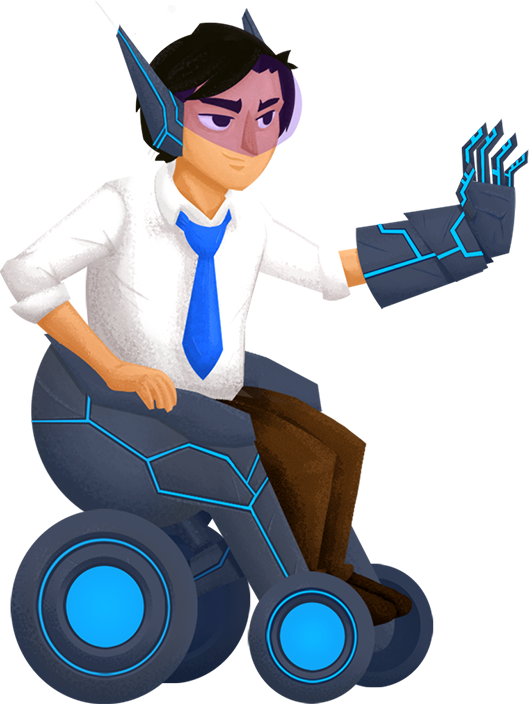Meet the Squad

Enforcer
Enforcers prevent foodborne illness from spreading by stopping you from eating contaminated foods!
How do enforcers help?
Enforcers make sure that food service establishments (like restaurants, grocery stores and food processing plants) follow food safety laws such as safe food preparation, proper storage, and preventing cross contamination.
How do public funds impact enforcement?
Public funds affect how many Enforcers are able to work monitoring the foods in our community. If Enforcers are stretched too thin, they won’t be able to inspect food establishments regularly, and violations may slip through the cracks.
Careers
- Regulatory food safety officials (or officers) & inspectors:
- Public officials who make sure food safety laws are followed.
- Quality assurance managers & specialists:
- Industry employees who make sure their companies follow food safety laws and diligently check food safety systems to be sure they are working as intended.

Researcher
Researchers look for new and more effective ways to prevent outbreaks, stop the spread of an outbreak and treat those infected.
How do researchers help?
Researchers conduct studies on foodborne pathogens and how they spread. This research takes place in laboratories, on farms or processing centers. Researchers also study the distribution and preparation of foods.
How do public funds impact research?
Funding from the public lets researchers conduct independent investigations into the causes and consequences of outbreaks. Public-funded researchers strive to understand causes and solutions, without undue influence from any particular corporation or the food industry.
Careers
- Microbiologists:
- Laboratory scientists who study germs, including pathogens that make people sick.
- Agricultural engineers or food technology researchers:
- Scientists who study agricultural production and processing in order to find better, safer ways to grow, process and store food.

Educator
Educators spread knowledge and understanding about different ways to prevent yourself, and loved ones, from getting sick from foodborne illnesses. Knowledge is power!
How do educators help?
State, local and federal agencies have full time Educators, such as food safety specialists who travel within the community to teach about health and safety. They may also distribute information online, through printed materials and signage, or in marketing campaigns about specific food safety issues. Teachers in schools, colleges and universities are also Educators. They train students, farmers, processors, and food service workers in the science and strategy of food safety.
How do public funds impact education?
Public funds affect who and how many people Educators are able to train. For example, if there are budget cuts, Educators who previously reached both high schoolers and elementary schoolers in their community may now only be able to reach one or the other. An increase in public funds could support Educators at more institutions (like colleges and universities), distribute educational materials more broadly, or incorporate food safety education into job training programs.
Careers
- Health communicators or health educators:
- Specialists who work to help the public understand more about medical treatment, healthy lifestyle choices, disease prevention, and risk management.
- Community health workers:
- On-the-ground educators who collect data and discuss health concerns within a specific group or community.

Healthcare Professional
Healthcare professionals are responsible for healing people already affected by an outbreak.
How do healthcare professionals help?
Medics are doctors, nurses, and other healthcare providers. These people diagnose and treat people the medical community informed about the pattern and cause of an outbreak.
How do public funds impact healthcare?
Public funds directly support hospitals, healthcare programs, and prescription medication programs. Public funds indirectly support Medics by helping to track outbreaks. This helps keep the medical community informed about the pattern and cause of an outbreak.
Careers
- Epidemiologists:
- Doctors or officials who investigate patterns and distribution of disease within populations.
- Pathologists:
- Doctors who diagnose medical conditions to determine the causes of disease. General health providers: Doctors, nurses, and others who care for patients, investigate illnesses, and provide treatment.